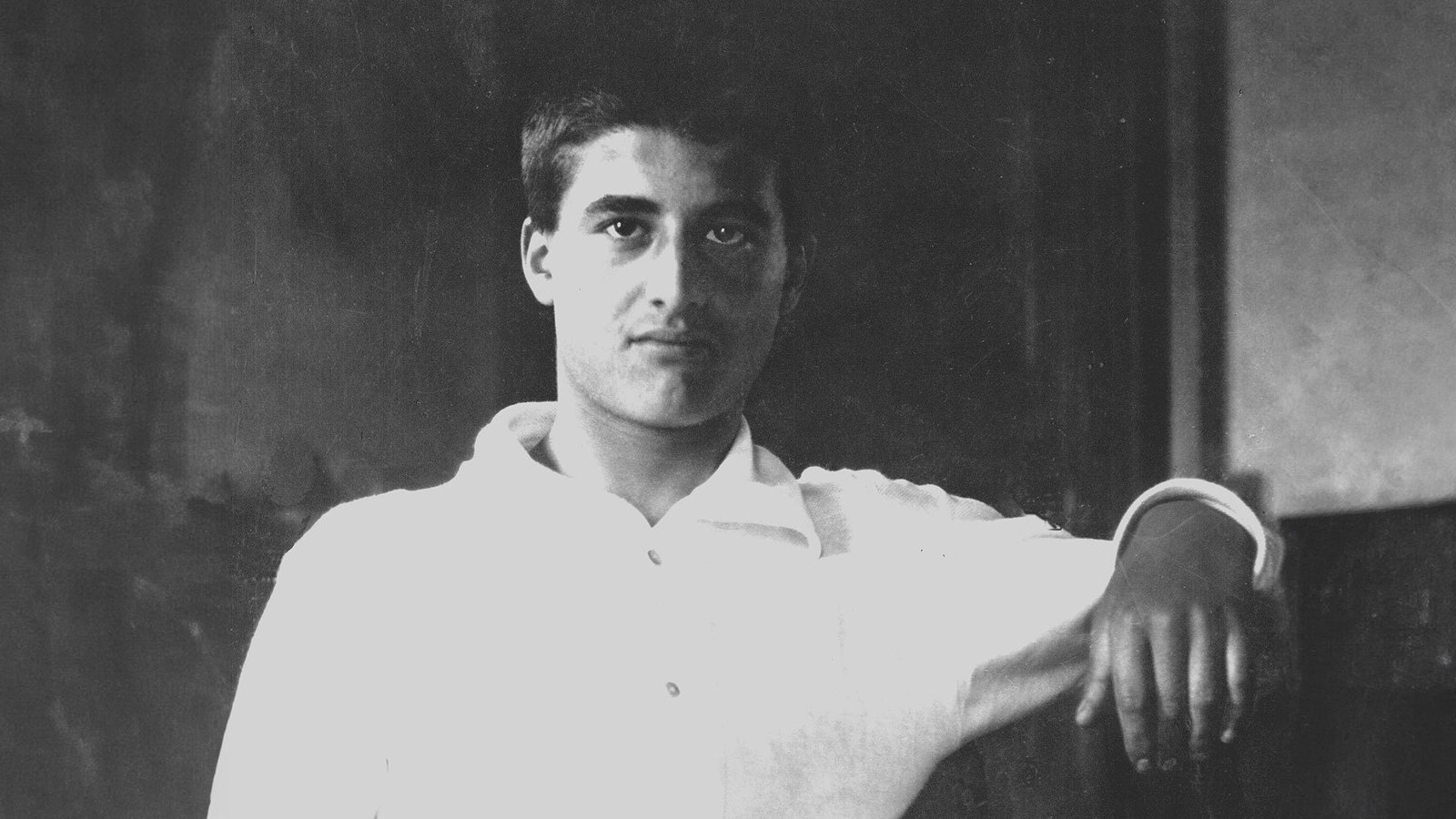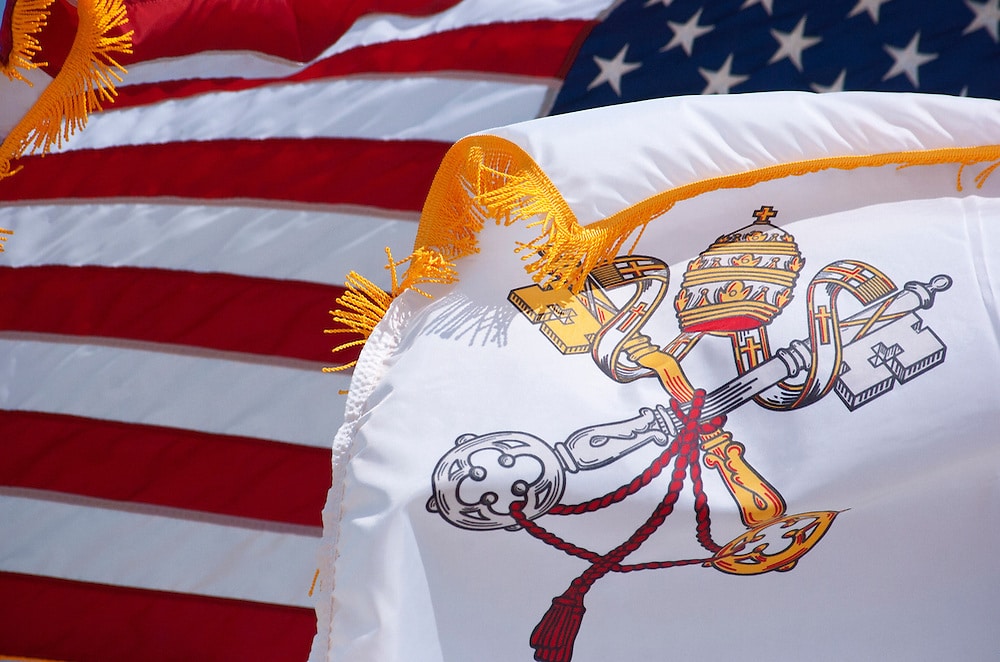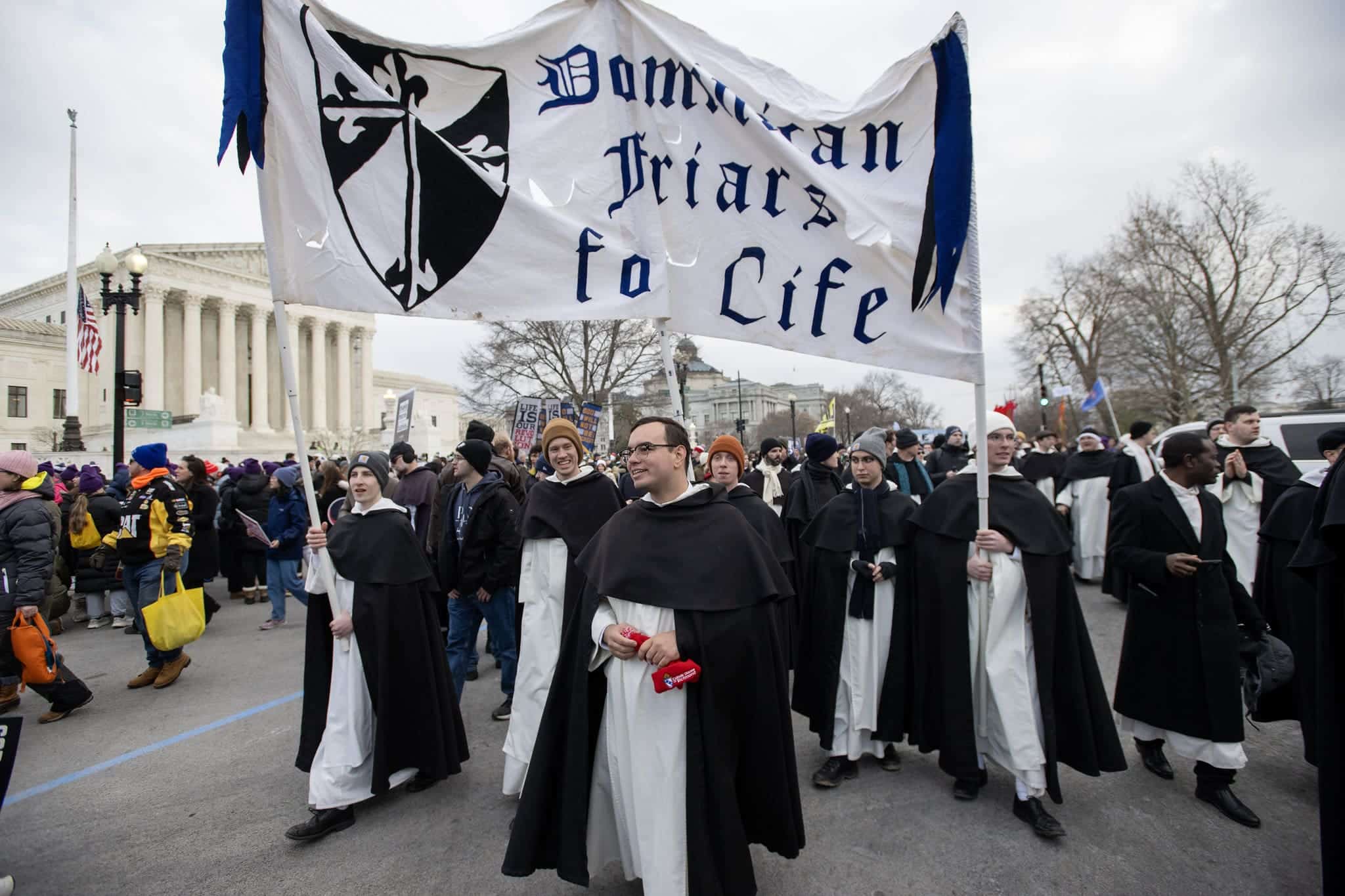[vc_row][vc_column][vc_column_text]
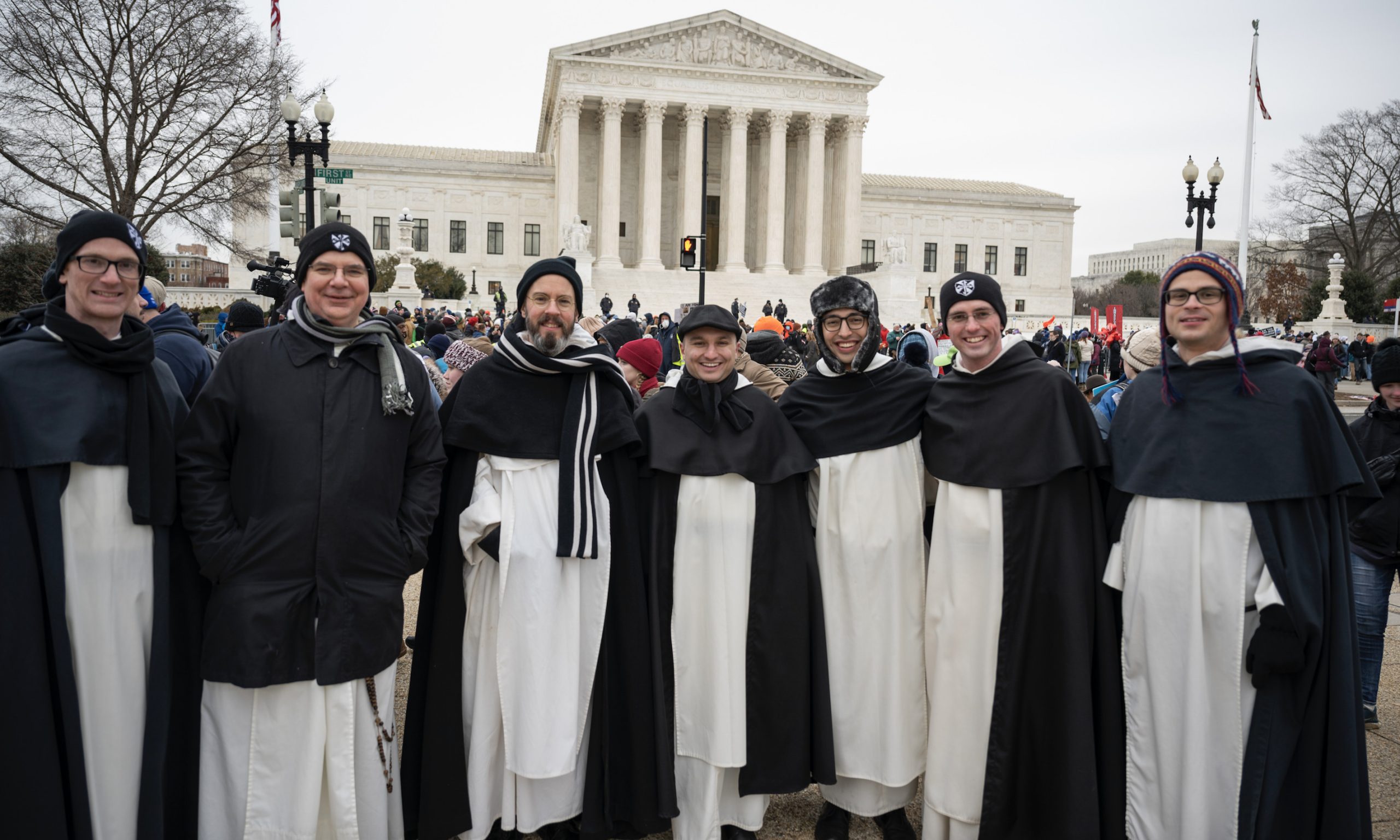
Dominican Friars stand before the Supreme Court at the March for Life.
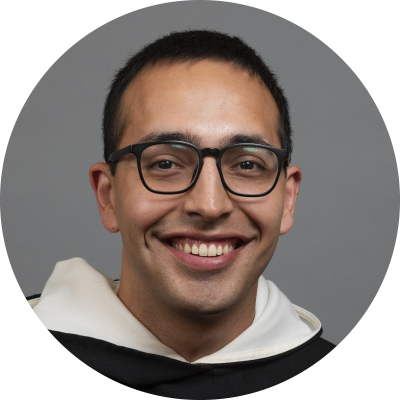
By Br. Juan Macias Marquez, O.P.
All Photos by George Goss
Hope and excitement permeated the air. Prayer and exhortation flooded the scene. At this year’s March for Life there was an extra little pep in everyone’s step as we marched down Constitution Avenue bound for the Capitol and Supreme Court. At the prospect of a reversal of the Supreme Court’s infamous Roe v. Wade decision, many brave marchers were eager to show their hope that God has not abandoned His people in their fight for the unborn, that God has not been silent to the cries of the unborn. The tide seems to be turning.
Now, we don’t know what the future holds. Roe v. Wade might not be overturned. We might have to continue our fight against legalized abortion and may need to change our tactics while remaining ever in prayer for the cause of life. However, even if the horrid Roe v. Wade decision is overturned and the fight for the unborn goes to the states, we will still have to labor for the unborn and we must be more dynamic in doing so. Even if abortion becomes completely illegal in this country, we will still have to carry the banner of the pro-life cause. Why? Because laws don’t directly change hearts.
Over the past fifty years, with the legalization of abortion, we Americans have created a culture in which abortion went from possible with certain caveats to a woman’s fundamental right. At first women would only abort their unborn child in the most drastic of circumstances. Then slowly the inhibitions towards having an abortion faded away. Now we meet women who are proud of their many abortions. What does this say about the hearts of those around us?
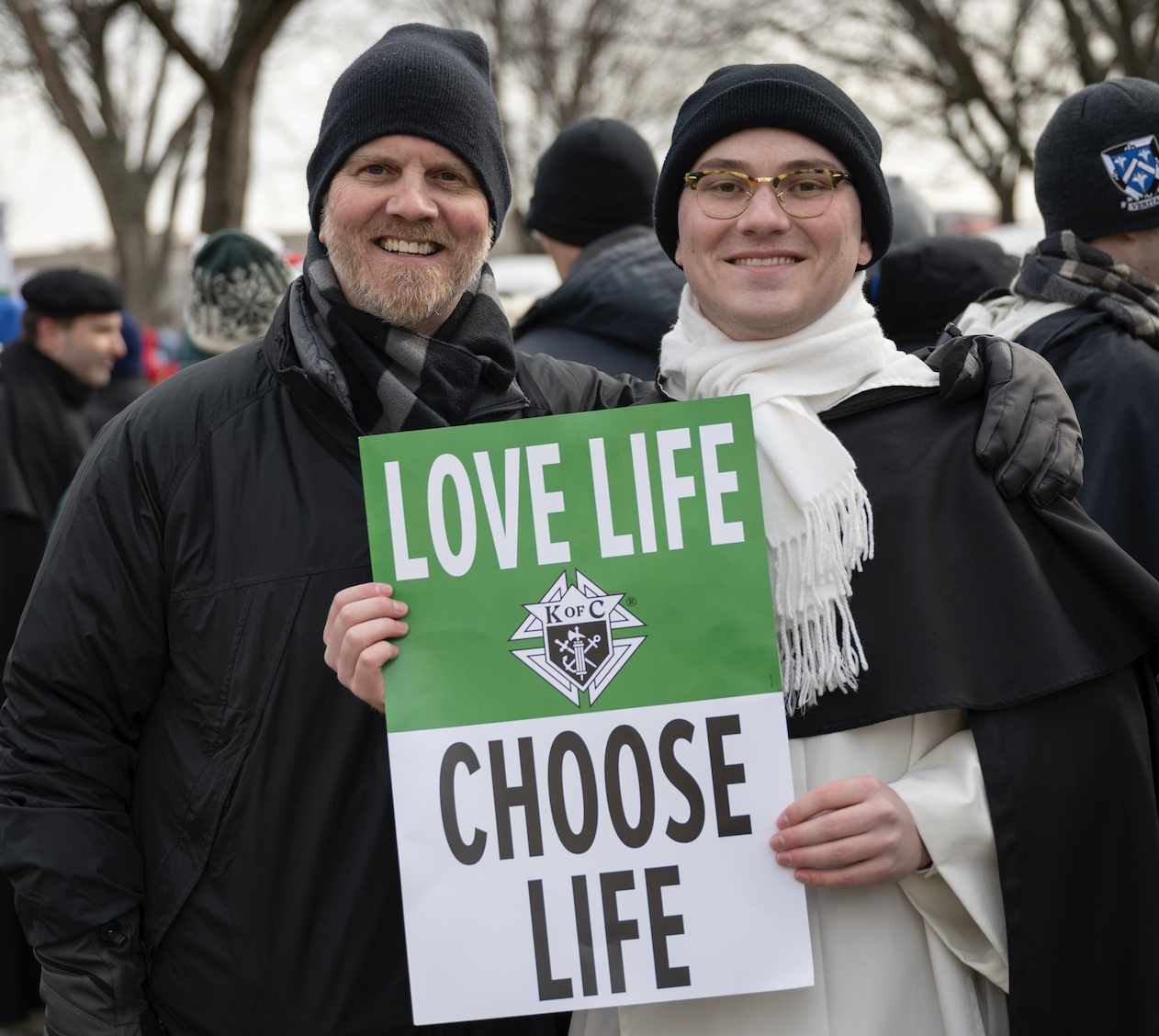
A Dominican student brother marches with his father.
But we do not lose hope. God has used the Church to conform the culture to the Gospel time and time again. From her infancy, the Church spoke out clearly against the horrors of abortion in a first-century document titled the Didache. The Church was tasked with changing the hearts and minds of ancient Romans and Greeks for whom abortion was a common reality. Because of her conviction about the sanctity of life, the Church persisted in her condemnation of abortion and after some time it became unthinkable to be a proponent of abortion. Though we live in a decidedly different age we trust in the power and dynamism of the Gospel and God’s desire that all people come to live the fullness of life that He has provided for them as His sons and daughters.
If the Church is going to transform the culture, then we must situate the issue of abortion in the context of a deeper understanding of life. Only then as a culture will we begin to possess greater reverence for the sanctity of life, specifically in the womb but also at all stages of human development. Our recent pontiff Pope St. John Paul II, in his encyclical on life, Evangelium Vitae, instructs us as we move forward to fight for life in an unknown future:
“All together, we must build a new culture of life: new, because it will be able to confront and solve today’s unprecedented problems affecting human life…new, because it will be capable of bringing about a serious and courageous cultural dialogue among all parties. While the urgent need for such a cultural transformation is linked to the present historical situation, it is also rooted in the Church’s mission of evangelization. The purpose of the Gospel, in fact, is ‘to transform humanity from within and to make it new’…to permeate all cultures and give them life from within, so that they may express the full truth about the human person and about human life.” (Evangelium Vitae 95)
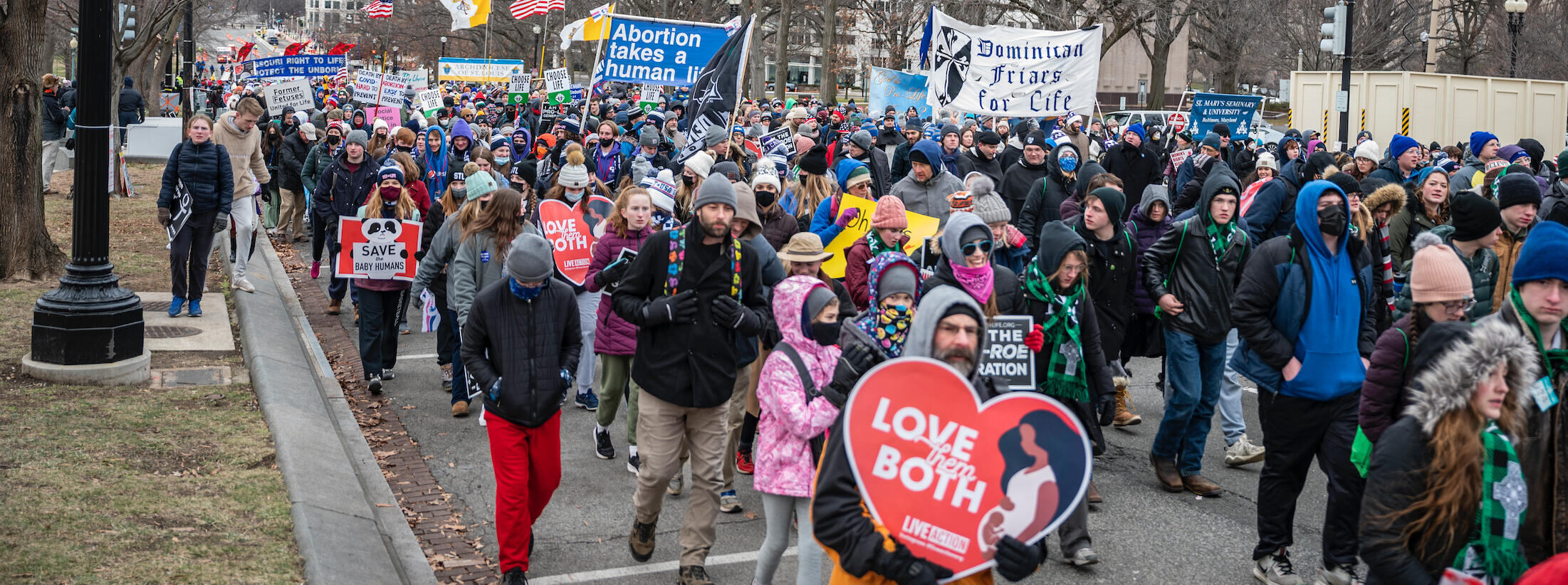
Help the Dominican Friars fight the battle for Life!
[/vc_column_text][vc_column_text]
[/vc_column_text][vc_column_text]
Your gift to support Pro-Life preaching will be matched dollar for dollar – up to $250,000 – by a group of anonymous benefactors if given by May 31!
[/vc_column_text][/vc_column][/vc_row]




